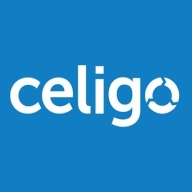

Appian and Celigo Integration Platform are competitors in the integration and automation space. Celigo Integration Platform often has the upper hand in features and flexibility with robust integration capabilities, while Appian leads in areas like support and pricing by offering a straightforward solution.
Features: Appian offers a process automation platform with low-code development, customizable dashboards, and seamless system integrations. Celigo Integration Platform includes pre-built connectors, intuitive workflow automation, and flexibility for cloud service integrations. Celigo is noted for its integration versatility.
Ease of Deployment and Customer Service: Celigo Integration Platform features a user-friendly deployment with extensive training resources and responsive support. Appian provides efficient deployment with comprehensive support but can be more cumbersome initially. Celigo's deployment ease and superior customer service make it suitable for rapid implementation.
Pricing and ROI: Appian offers competitive pricing that often results in faster ROI due to its low-code approach. Celigo Integration Platform may be more expensive upfront but provides high ROI through extensive integration options and scalability. Appian's cost-effectiveness contrasts with Celigo's value for complex needs.
| Product | Market Share (%) |
|---|---|
| Appian | 5.3% |
| Celigo Integration Platform | 0.3% |
| Other | 94.4% |

| Company Size | Count |
|---|---|
| Small Business | 20 |
| Midsize Enterprise | 9 |
| Large Enterprise | 41 |
Appian is a unified low-code platform and solution used by businesses to build enterprise applications and workflows. This product adapts to the needs of clients and the technologies they are already using to combine their data in a single workflow and maximize resources. The platform has four main components through which it transforms the work process for companies of various sizes. They are:
Appian is utilized across a diverse set of industries, including automotive and manufacturing, energy and utilities, education, financial services, telecom and media, transportation, retail, insurance, healthcare, and life sciences. The most frequent use cases of Appian are customer journey, governance, risk and compliance, operational efficiency, supply chain, distributed order management, and environmental, social, and governance (ESG) management.
Appian Features
Appian has various features that allow users to create solutions for their businesses. These features can be separated into a few groups according to function, including automation, low-code application development, and integrations and data. Some of the most frequently used features of Appian include:
Appian Benefits
The benefits of using Appian include:
Reviews from Real Users
A practice leader - digital process automation at a computer software company values Appian highly because the product is easy to develop, low-code, and has a good user interface.
Alan G., an advisory board member at Codecon VR, Appian offers a clear application life cycle, easy to learn documentation, and comes with a fundamentals course.
Celigo stands as a leading Integration Platform as a Service (iPaaS) solution, empowering businesses to seamlessly connect and automate their enterprise applications. With a unified platform supporting over 2,000 connectors and data sources, Celigo enables the integration, orchestration, and automation of business processes across cloud and on-premises systems. Key features include AI-powered automation, real-time data exchange, low-code development tools, and enterprise-grade security. Businesses of all sizes leverage Celigo to automate tasks in sales and marketing, customer service, order management, financial and accounting processes, as well as HR operations. The platform not only offers efficiency and agility but also brings about benefits such as reduced IT costs, improved productivity, increased efficiency, and enhanced adaptability to changing business needs.
We monitor all Business Process Management (BPM) reviews to prevent fraudulent reviews and keep review quality high. We do not post reviews by company employees or direct competitors. We validate each review for authenticity via cross-reference with LinkedIn, and personal follow-up with the reviewer when necessary.